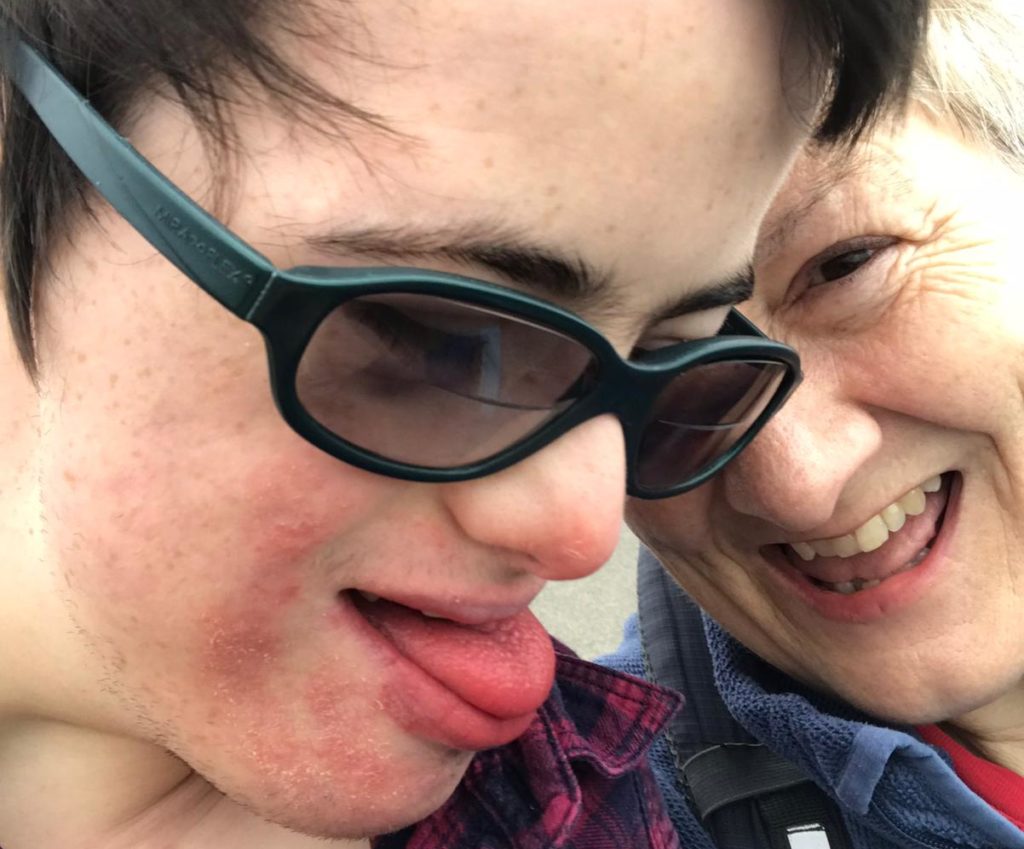How to spot when someone feels lonely, and what you can do about it
How we connect with other people has a big impact on our sense of wellbeing. For some people with complex disabilities, it can feel like there are fewer opportunities to build meaningful relationships. Here are some of the ways we can all help.

While loneliness is something that can affect anyone, disabled people are more likely to feel isolated. This can be due to not having the same support networks around them or equal chances to feel part of their local communities.
It’s important to be able to spot the signs of loneliness so that we can better reach out to people who might be feeling isolated.
I saw these signs in my son, Fearghas, during a time in his life when his social opportunities were limited. He would keep his eyes down and shrink into himself. With just a small amount of work, he was supported to make connections and start building friendships.
Five signs of loneliness
Here are some common behaviours in someone who is feeling socially excluded:
- Withdrawal – Some of us become much quieter than usual, withdraw into ourselves and can seem subdued.
- Repetitive movements – We might find ourselves repeating the same motions, like tapping our leg. This sensory stimulation sometimes replaces the social stimulation we’re missing.
- Feeling tired or lethargic – It’s common to feel like our energy levels are lower than normal. We might feel tired without any obvious reason.
- Not wanting to be touched – Even though people might want to, we don’t always like to be hugged if we’re feeling low.
- A change in appetite – For some of us, our appetite can change a lot. We might eat more or suddenly eat less than we would usually.
How to provide support
Reaching out and letting someone know that you’re there can really help. Not everyone will want physical support, but it can be nice to have the option.
If someone is feeling lonely, they might find that getting outside, even for a short walk, can really boost their mood and energy.
When they’re ready, there are lots of ways to try create and explore new relationships.
Five ways to make new friends
Making friends can be a bit daunting so here are five easy ways to get the ball rolling:
- Take part in a group activity – Join a new society or class and you’ll find people with the same interests. Then you know you’ll have lots to talk about.
- Sit with other people at lunch – Meals can be great social moments in our day. Sit with someone new and ask them about their day.
- Don’t worry too much – Try not think about the worst-case scenarios. This is something we all do and it can really hold us back. Very rarely do things go badly.
- Help someone out – Are there opportunities for you to help your community? From litter-picking to poster-sticking, find a way to join in and volunteer with other kind, helpful people.
- Start small – If you’re nervous about trying new things and meeting new people, talk to people you already know for a bit of moral support. They might have some great advice for you too!
Help tackle loneliness with Sense
Could you be a Virtual Buddy to a disabled person? It’s the best way to volunteer from home, while making a difference to someone who feels socially excluded.

